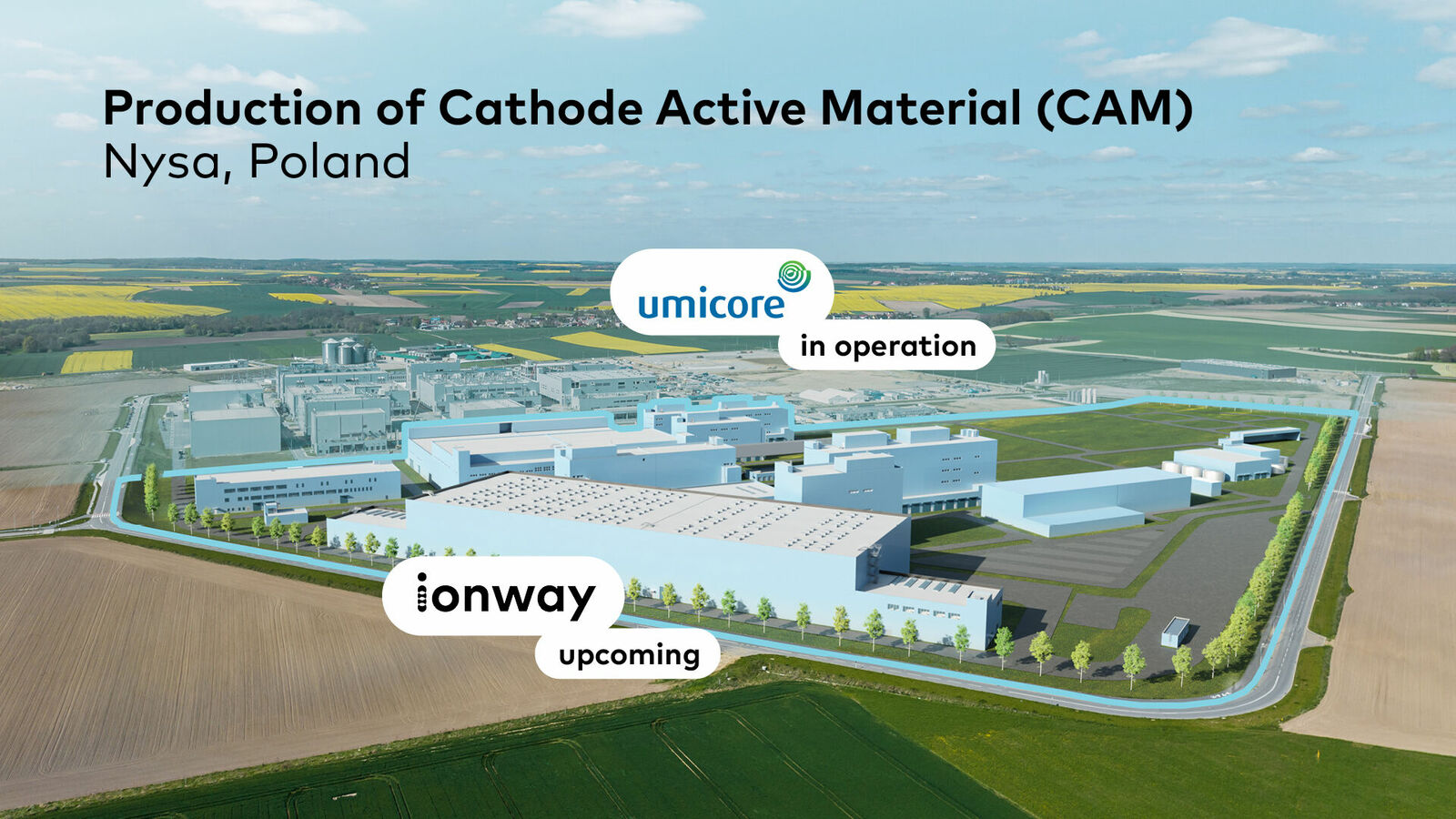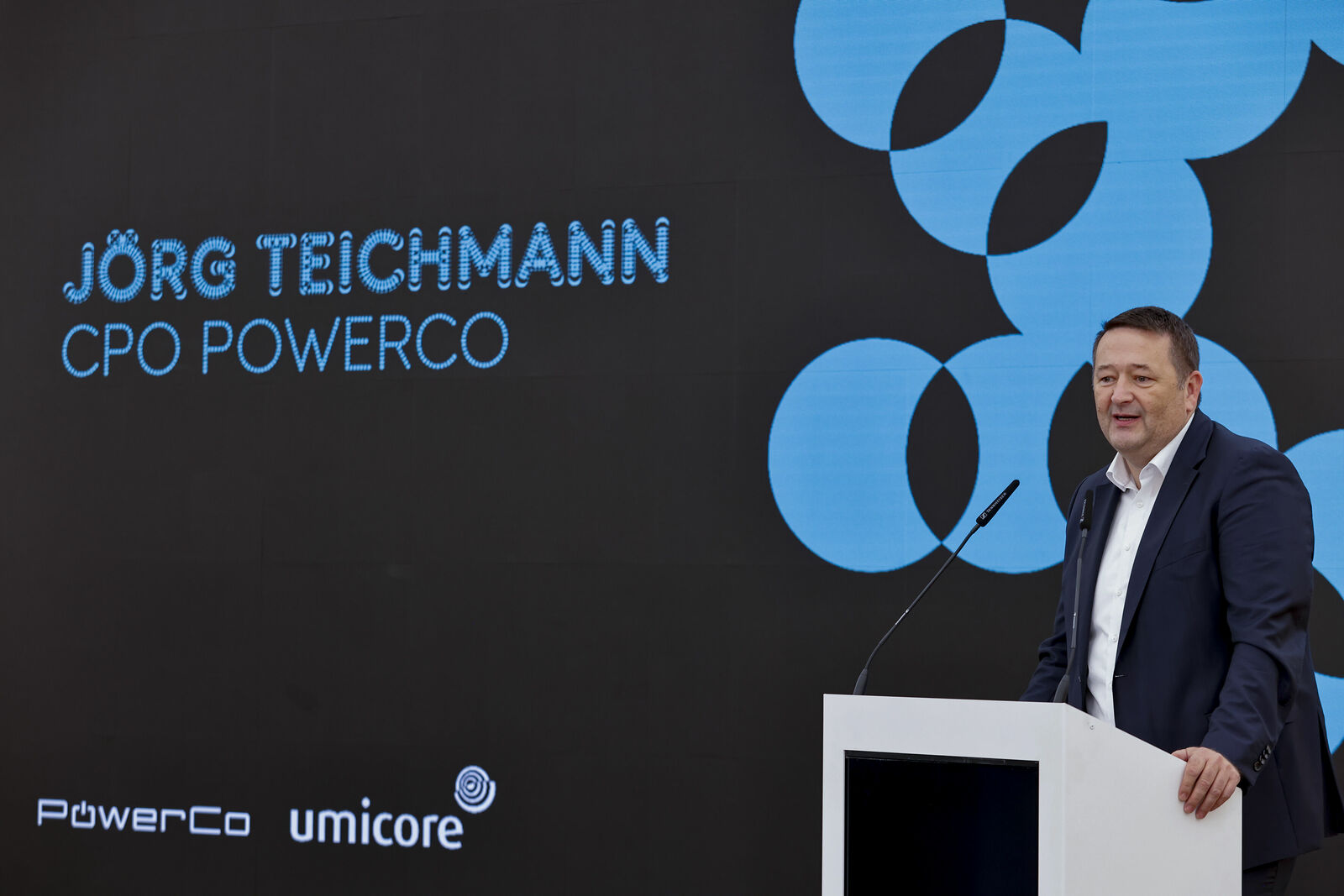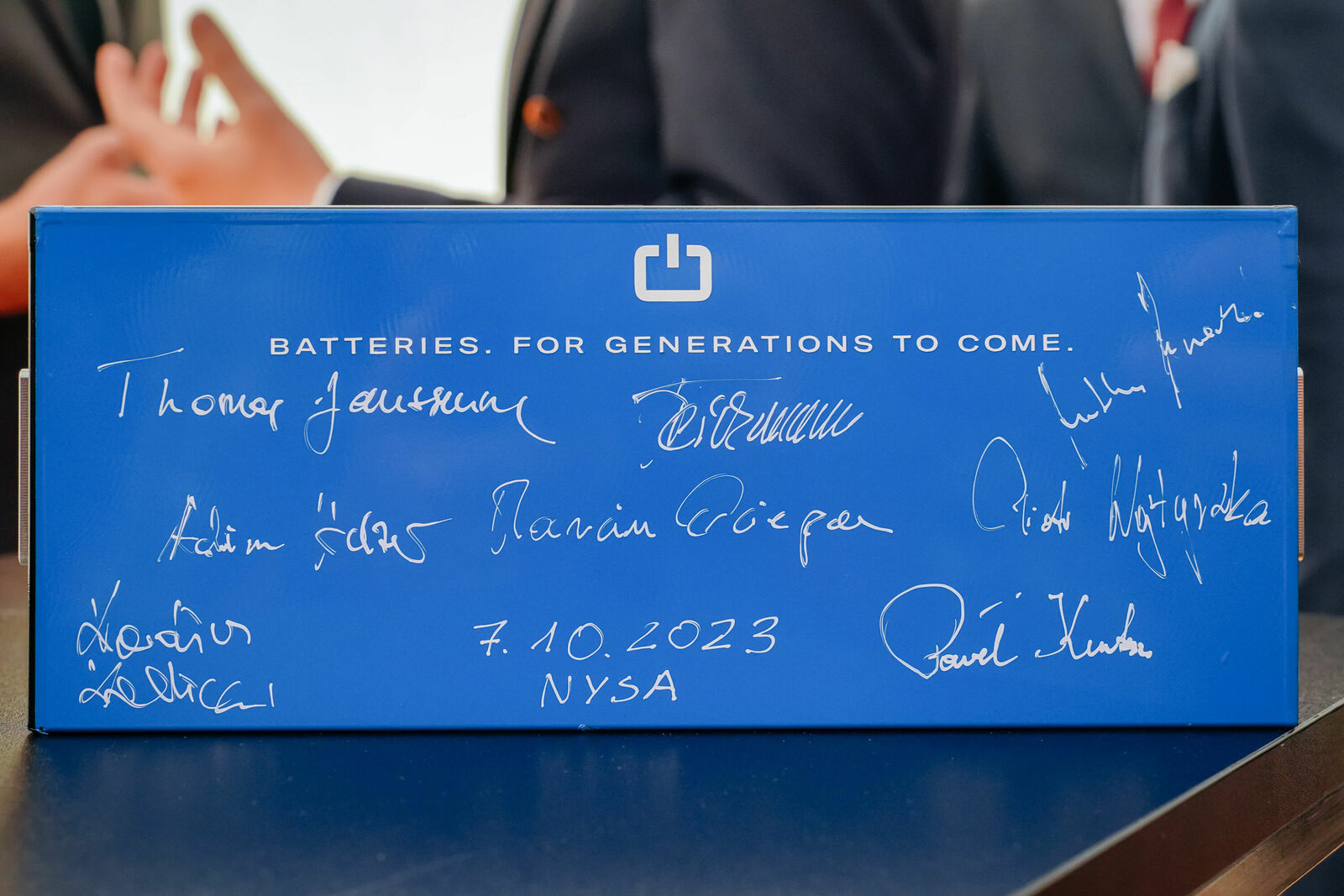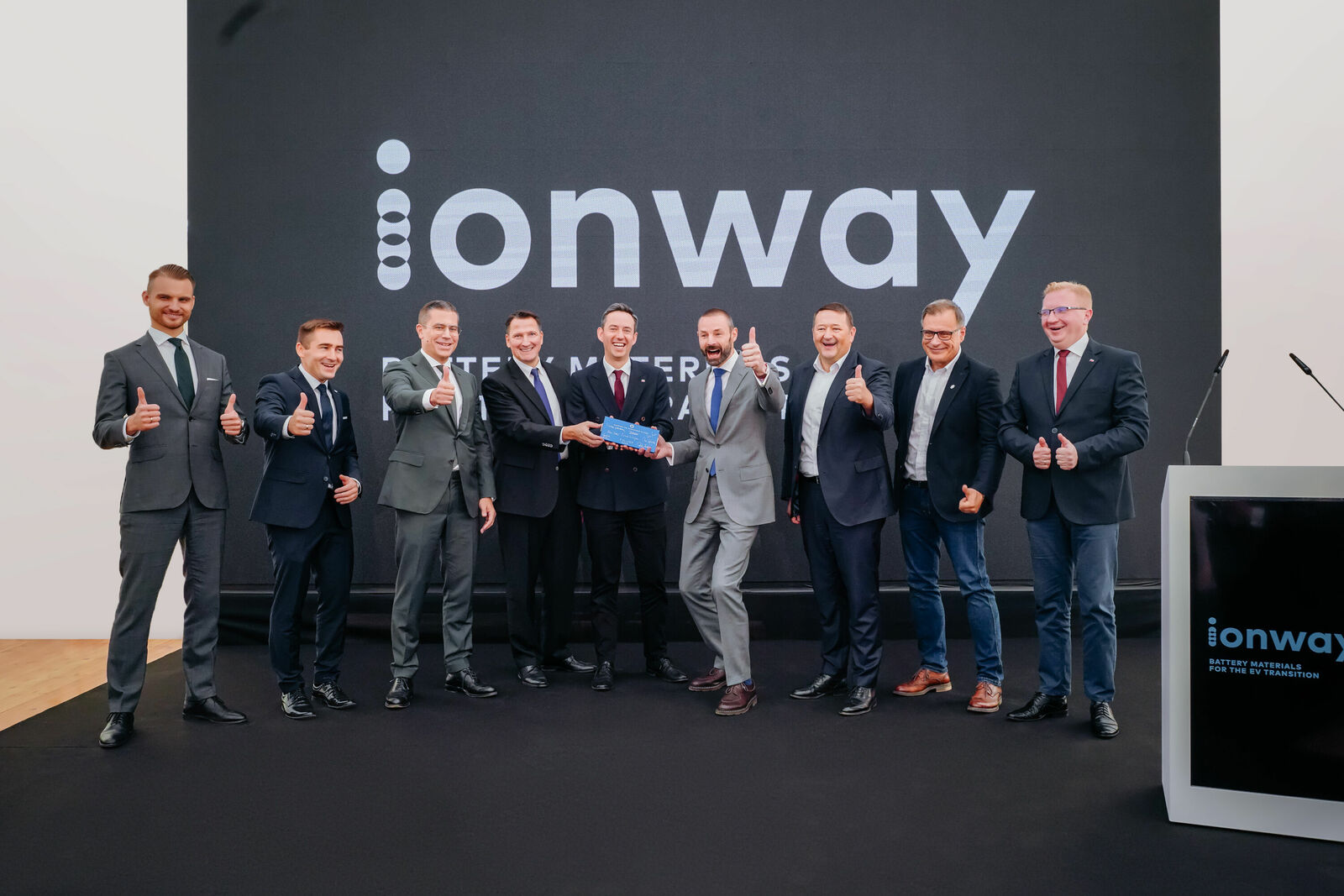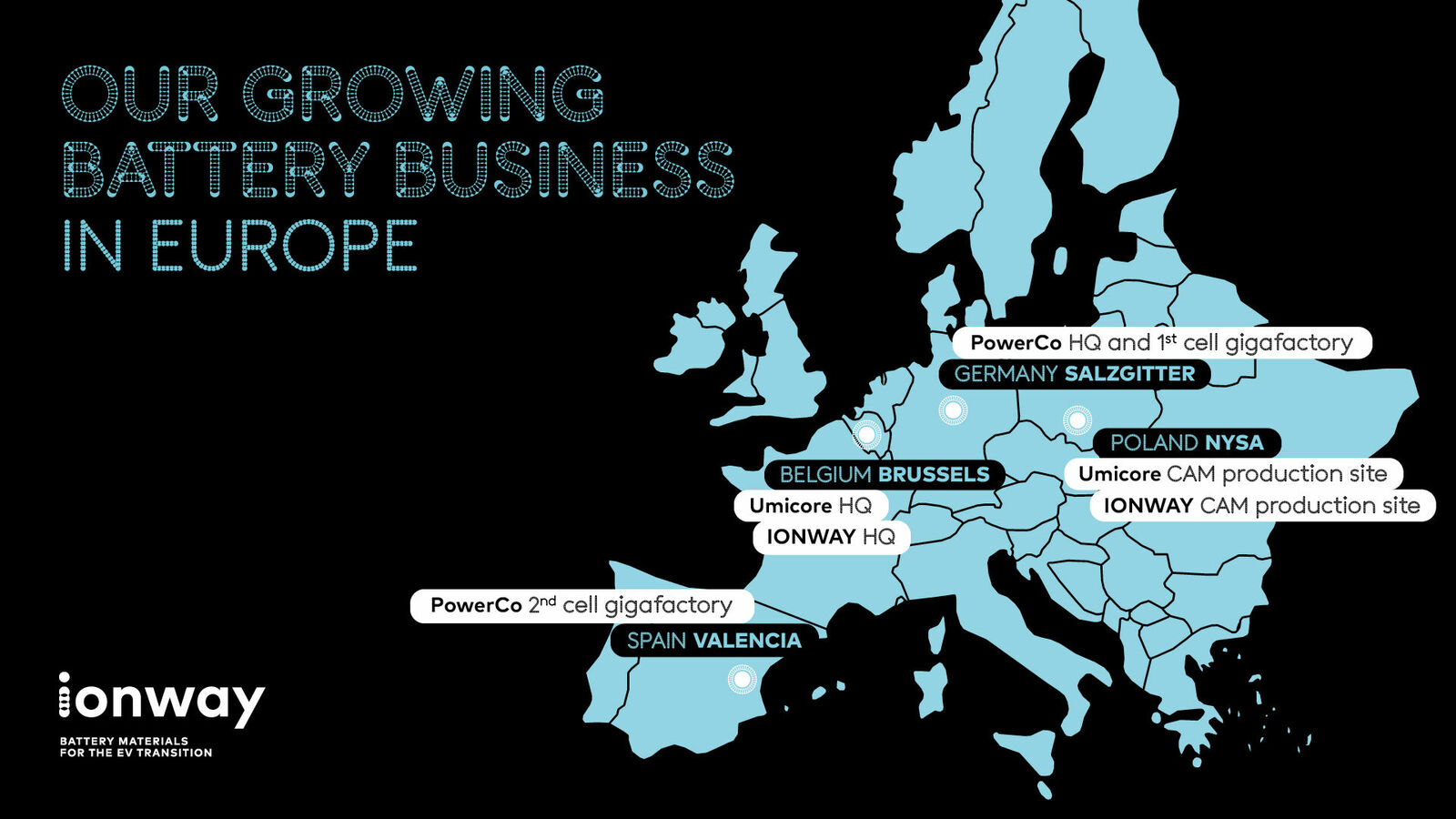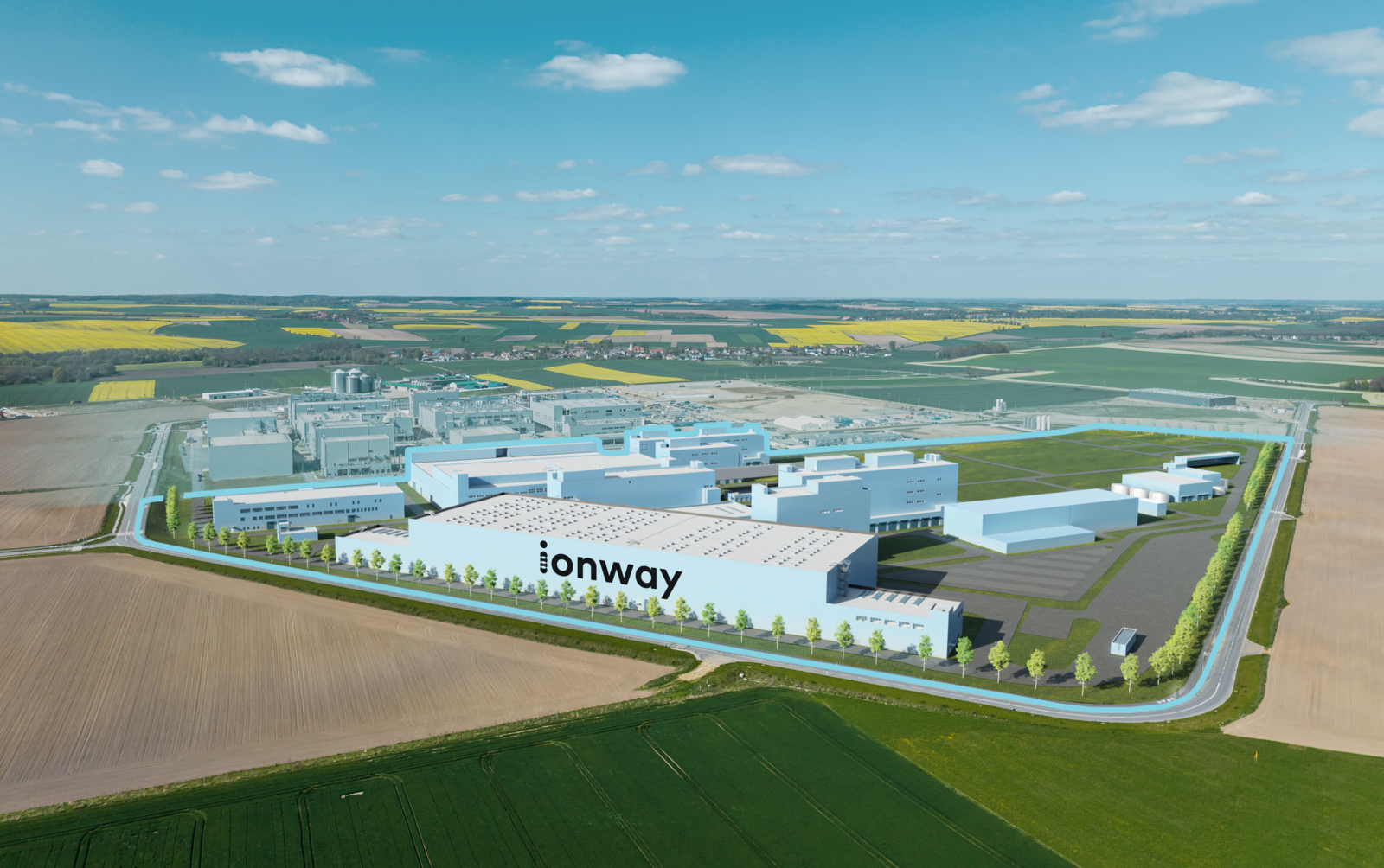“We are excited with today’s announcement, as it marks the operational first step of IONWAY and an important step in the expansion of Umicore’s European local-for-local integrated battery materials value chain,” said Mathias Miedreich, CEO of Umicore.
Jörg Teichmann, Chief Purchasing Officer of PowerCo: “IONWAY gives both PowerCo and Umicore a significant first-mover advantage in the fast-growing e-mobility market in Europe. PowerCo has now co-created what it was looking for: a battery materials supplier to secure and build-up manufacturing capacity for reliable and cost-competitive precursor and cathode material production based on responsibly sourced raw materials.”
The Polish government strongly supports the investment in Nysa ‒ which is expected to create about 900 future-proof industry jobs in Nysa towards the end of the decade ‒ and is offering IONWAY € 350 million in cash grants under the Temporary Crisis and Transition Framework for a total investment of up to €1.7 billion (€ 1.35 billion after grants) by the end of the decade. The TCTF fosters support measures in sectors which are key for the transition to a net-zero economy in line with the Green Deal Industrial Plan.
“We are thankful for the Polish government’s support in IONWAY’s choice for Nysa. The strategic location of the joint venture’s battery materials plant in Poland, right next to Umicore’s own battery materials plant, which is still unique in Europe, will further enable the transition to electric driving that is truly sustainable,” added Mathias Miedreich, CEO of Umicore.
Preparation of the site, engineering, and permitting are ongoing and construction will start soonest once the permitting process is completed. Production of the plant is expected to begin as soon as construction is completed, while PowerCo’s CAM demand for the Salzgitter cell gigafactory is secured from the existing production capacity of Umicore in Nysa in time for its start of production in 2025.
IONWAY’s choice for Nysa and Poland is based on their strategic location with access to renewable energy sources to power the plant’s production, as well as a skilled workforce, and follows the support from the Polish government. Moreover, the production facility will benefit from Umicore’s nearby CAM know-how in Nysa and easy access to raw materials from Umicore’s refining operations in Finland.
"Today’s launch of IONWAY signals PowerCo’s and Umicore’s commitment to sustainable progress that makes electric cars affordable for everybody, starting now,” said Thomas Jansseune, CEO of IONWAY.
IONWAY will produce tailored high-performance CAM as well as the related precursor materials (pCAM), and supply it to PowerCo’s European battery cell gigafactories. The site selection for IONWAY’s pCAM plant is ongoing and will be announced at a later date.
As the key technological levers for the performance of rechargeable batteries, pCAM and CAM are essential to a successful powertrain transition towards e-mobility, with ultra-pure CAM being the battery’s most critical and therefore valuable component.
About Ionway
Please refer to the website of the new company: www.ionway.com.
About PowerCo
The Volkswagen Group is bundling global battery activities in the European company (SE) PowerCo. From Salzgitter, the company manages international factory operations, the further development of cell technology, and the vertical integration of the value chain. Looking ahead, further products such as major storage systems for the energy grid are planned. Since its launch in July 2022, PowerCo has already decided three gigafactory locations: Salzgitter in Germany, Valencia in Spain and St. Thomas in Canada. The company plans to set up cell factories with a total capacity of 240 GWh/year in 2030.
About Umicore
Umicore is a leading circular materials technology group. It focuses on application areas where its expertise in materials science, chemistry and metallurgy makes a real difference. Its activities are organized in three business groups: Catalysis, Energy & Surface Technologies and Recycling. Umicore generates the majority of its revenues and dedicates most of its R&D efforts to clean mobility materials and recycling. Umicore’s overriding goal of sustainable value creation is based on an ambition to develop, produce and recycle materials in a way that fulfils its mission: materials for a better life. Umicore’s activities are located across the world to best serve its global customer base. The Group generated revenues (excluding metal) of € 4.2 billion (turnover of € 25.4 billion) in 2022 and currently employs more than 11,000 people.
Related Content:
Press Release: PowerCo and Umicore set up pre-eminent new European battery materials player









